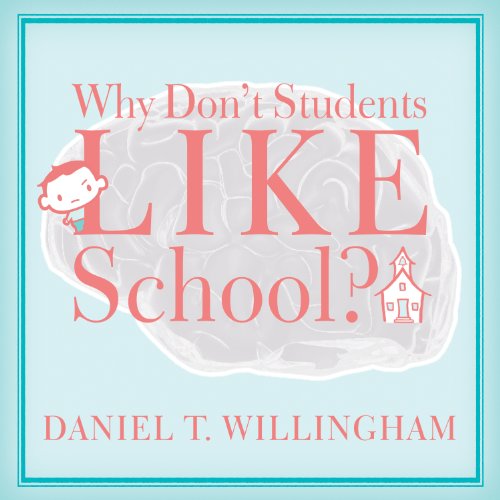
Why Don't Students Like School?
A Cognitive Scientist Answers Questions About How the Mind Works and What It Means for the Classroom
Artikel konnten nicht hinzugefügt werden
Der Titel konnte nicht zum Warenkorb hinzugefügt werden.
Der Titel konnte nicht zum Merkzettel hinzugefügt werden.
„Von Wunschzettel entfernen“ fehlgeschlagen.
„Podcast folgen“ fehlgeschlagen
„Podcast nicht mehr folgen“ fehlgeschlagen
 Bist du Amazon Prime-Mitglied?
Bist du Amazon Prime-Mitglied? Audible 60 Tage kostenlos testen
Für 27,95 € kaufen
-
Gesprochen von:
-
Paul Costanzo
-
Von:
-
Daniel T. Willingham
Über diesen Titel
Kids are naturally curious, but when it comes to school it seems like their minds are turned off. Why is it that they can remember the smallest details from their favorite television programs, yet miss the most obvious questions on their history test? Cognitive scientist Dan Willingham has focused his acclaimed research on the biological and cognitive basis of learning and has a deep understanding of the daily challenges faced by classroom teachers. This book will help teachers improve their practice by explaining how they and their students think and learn - revealing the importance of story, emotion, memory, context, and routine in building knowledge and creating lasting learning experiences.
In this breakthrough book, Willingham has distilled his knowledge of cognitive science into a set of nine principles that are easy to understand and have clear applications for the classroom. Some examples of his surprising findings are:
- "Learning styles" don't exist. The processes by which different children think and learn are more similar than different.
- Intelligence is malleable. Intelligence contributes to school performance and children do differ, but intelligence can be increased through sustained hard work.
You cannot develop "thinking skills" in the absence of facts. We encourage students to think critically, not just memorize facts. However, thinking skills depend on factual knowledge for their operation. Why Don't Students Like School is a basic primer for every teacher who wants to know how their brains and their students' brains work and how that knowledge can help them hone their teaching skills.
PLEASE NOTE: When you purchase this title, the accompanying reference material will be available in your My Library section along with the audio.
©2009 Daniel T. Willingham (P)2011 TantorKritikerstimmen
There is no point in teaching if you neglect all the scientific knowledge that has been accumulated about teaching.
What do students need to improve their learning?
Why is practice important?
How can a teacher engage his students and support their learning process?
These are just a few questions that this book answers with 9 simple rules and many examples!
Every teacher should listen to this
Ein Fehler ist aufgetreten. Bitte versuche es in ein paar Minuten noch einmal.



